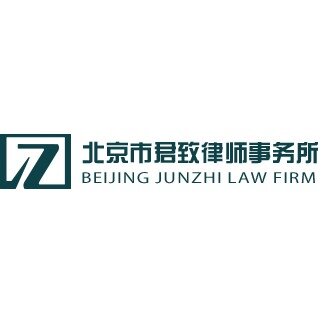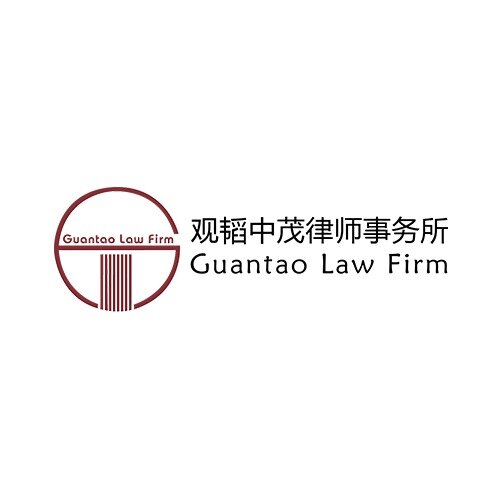Best Corporate & Commercial Lawyers in Beijing
Share your needs with us, get contacted by law firms.
Free. Takes 2 min.
List of the best lawyers in Beijing, China
About Corporate & Commercial Law in Beijing, China
Corporate and commercial law in Beijing covers the legal rules and regulations that affect how businesses are formed, operated, managed, financed, and dissolved. As the capital of China and a major financial center, Beijing is home to a wide array of domestic and foreign businesses. The city hosts regional headquarters, joint ventures, representative offices, startups, and large enterprises, each subject to Chinese laws and local Beijing regulations. Corporate and commercial law in Beijing addresses various matters, including company formation, mergers and acquisitions, commercial contracts, compliance, investment, and dispute resolution.
Why You May Need a Lawyer
Seeking specialized legal assistance in the corporate and commercial field is important for several reasons. Some common situations where professional legal help is essential include:
- Setting up a new business entity, such as a limited liability company, joint venture, or representative office
- Drafting, negotiating, or reviewing commercial contracts and agreements
- Navigating mergers, acquisitions, or restructuring processes
- Complying with Chinese regulatory requirements concerning foreign investment, employment, taxation, and data protection
- Addressing shareholder or partnership disputes
- Securing business licenses and permits specific to Beijing
- Intellectual property registration and protection
- Handling commercial disputes through arbitration or litigation
- Advising on exit strategies and business dissolution
- Understanding changes in local and national commercial laws and regulations
Local Laws Overview
Beijing businesses must comply with both national laws and rules specific to the city. Key aspects of local and national corporate and commercial law relevant in Beijing include:
- Company Law of the People’s Republic of China governs how business entities are established and operated, covering corporate structure, shareholder rights, and governance.
- Foreign Investment Law and related regulations outline the framework for foreign capital participation, investment approval, and special requirements for foreign-invested enterprises in Beijing.
- Business Licensing and Registration is regulated by the Beijing Municipal Administration for Market Regulation, which oversees business licenses, permits, and registrations specific to the city.
- Contract Law establishes rules for commercial contracts, including Clauses on validity, enforcement, and dispute resolution.
- Employment Law details employee rights and employer responsibilities, including labor contracts, social insurance, and workplace safety.
- Tax Law sets out corporate taxation and local tax requirements, with additional municipal standards that may apply in Beijing.
- Intellectual Property Law governs registration and infringement of trademarks, patents, and copyrights for businesses operating in the city.
- Anti-Monopoly Law and Unfair Competition Law stipulate requirements for competition and prohibit monopolistic practices.
Frequently Asked Questions
What types of business entities can be established in Beijing?
Common business entities in Beijing include limited liability companies, joint ventures, wholly foreign-owned enterprises, partnerships, and representative offices.
Can foreign individuals or companies invest in Beijing businesses?
Yes, but there are specific regulations under the Foreign Investment Law and relevant negative lists outlining restricted or prohibited industries for foreign investment.
What are the main requirements for registering a new company in Beijing?
Registration involves choosing a business name, preparing Articles of Association, providing identification for shareholders and directors, registering with the Beijing Municipal Administration for Market Regulation, and obtaining all necessary licenses and tax registrations.
How are commercial disputes typically resolved in Beijing?
Most disputes may be resolved through negotiation or mediation, but if unresolved, parties can use arbitration or litigation. Beijing is an important center for commercial arbitration in China.
Are there specific regulations for employment contracts in Beijing?
Employment contracts must comply with both national labor laws and Beijing's local regulations, specifying terms on job duties, wages, social insurance, and other key employment conditions.
What permits and licenses are required for operating a business in Beijing?
The requirements vary based on industry but typically include a business license, tax registration, social insurance registration, and permits for specific industries like food and beverage, healthcare, and technology.
How are mergers and acquisitions regulated in Beijing?
They are governed by Company Law, Securities Law, and regulations on foreign investment. Major mergers may require regulatory approval and antitrust review, especially if involving foreign buyers.
Is intellectual property protection strong in Beijing?
Beijing has robust mechanisms for registering and enforcing intellectual property rights, including dedicated courts and agencies for handling IP disputes.
How can a company comply with data protection laws in Beijing?
Compliance requires following the Personal Information Protection Law and Cybersecurity Law, ensuring data security, obtaining consent for data use, and possibly undergoing certain cybersecurity reviews depending on business type.
What are the tax obligations for companies in Beijing?
Companies in Beijing must pay corporate income tax, value-added tax, and other local taxes. Accurate tax registration and reporting are monitored by the Beijing tax authorities.
Additional Resources
Here are some helpful resources and organizations for corporate and commercial matters in Beijing:
- Beijing Municipal Administration for Market Regulation - Handles business licensing, registration, and regulation enforcement
- China Council for the Promotion of International Trade (CCPIT) and Beijing Arbitration Commission - For commercial dispute resolution
- Beijing High People’s Court - For legal proceedings and commercial litigation
- Intellectual Property Office of Beijing Municipality - For IP registration and protection
- Beijing Local Taxation Bureau and State Administration of Taxation - For taxation guidance and compliance
- Beijing Foreign Investment Service Center - For support with foreign investment procedures
- Chinese law firms with strong corporate and commercial practices
Next Steps
If you need legal assistance in corporate and commercial matters in Beijing, consider taking the following steps:
- Identify the specific issue you are facing, such as business formation, compliance, or dispute resolution
- Gather all relevant documentation, contracts, and correspondence related to your matter
- Research and consult a qualified corporate and commercial lawyer or law firm based in Beijing
- Contact the appropriate governmental authority or business support center in Beijing for procedural guidance
- Schedule a consultation to discuss your needs and understand your legal options
- Ensure your legal adviser is familiar with both national regulations and local Beijing requirements
Acting promptly and seeking professional advice can help you prevent costly mistakes and ensure your business operations in Beijing comply with all relevant laws and regulations.
Lawzana helps you find the best lawyers and law firms in Beijing through a curated and pre-screened list of qualified legal professionals. Our platform offers rankings and detailed profiles of attorneys and law firms, allowing you to compare based on practice areas, including Corporate & Commercial, experience, and client feedback.
Each profile includes a description of the firm's areas of practice, client reviews, team members and partners, year of establishment, spoken languages, office locations, contact information, social media presence, and any published articles or resources. Most firms on our platform speak English and are experienced in both local and international legal matters.
Get a quote from top-rated law firms in Beijing, China — quickly, securely, and without unnecessary hassle.
Disclaimer:
The information provided on this page is for general informational purposes only and does not constitute legal advice. While we strive to ensure the accuracy and relevance of the content, legal information may change over time, and interpretations of the law can vary. You should always consult with a qualified legal professional for advice specific to your situation.
We disclaim all liability for actions taken or not taken based on the content of this page. If you believe any information is incorrect or outdated, please contact us, and we will review and update it where appropriate.
Browse corporate & commercial law firms by service in Beijing, China
Beijing, China Attorneys in related practice areas.















